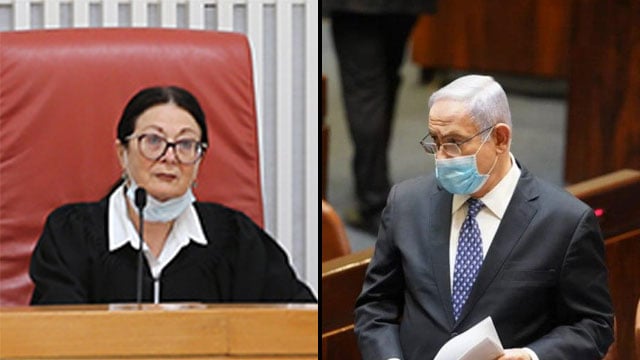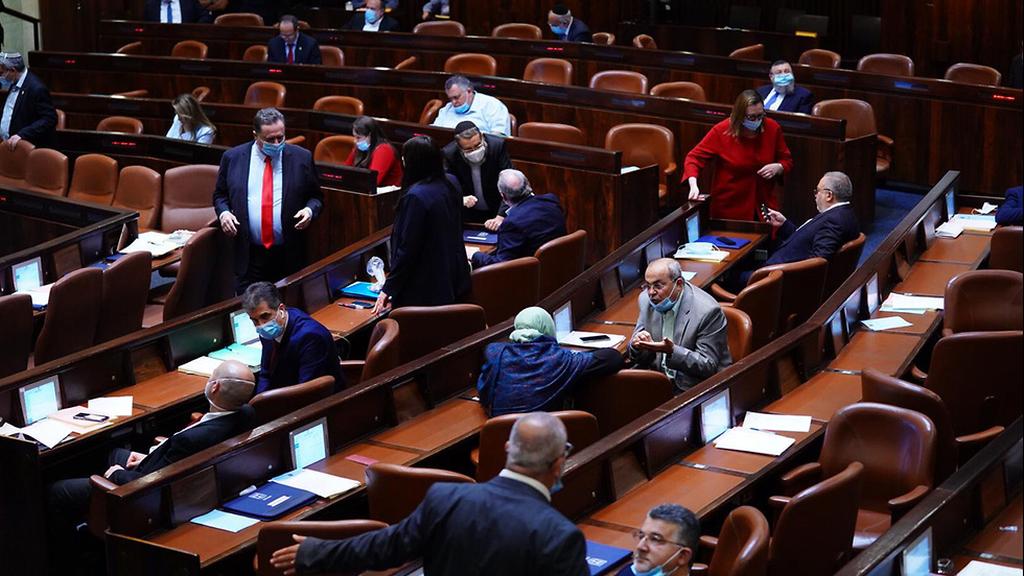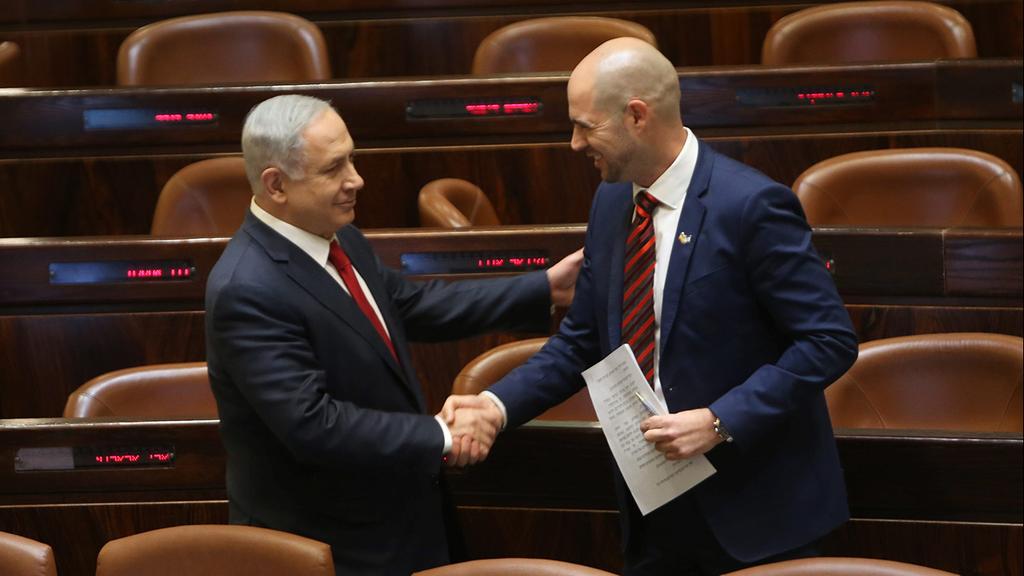The Supreme Court, which Prime Minister Benjamin Netanyahu had relentlessly attacked over the past year, has unanimously awarded him on Wednesday his biggest legal triumph since his criminal charges surfaced.
Historians and legal experts will debate the question of how a candidate for the premiership, who was indicted for bribery, fraud, and breach of trust, was given such a grand affirmation by the country's highest judicial body.
5 View gallery


Chief Justice Esther Hayut and Prime Minister Benjamin Netanyahu
(Photo: Amit Shabi, Knesset )
In its ruling, the Supreme Court explained that there is no legal cause for their intervention with the formation of the government by Netanyahu. It emphasized the message the justices tried to pass on to the petitioners in the two televised debates earlier this week – honoring the position of Knesset, which represents the will of the voter.
The court unanimously legitimized the line toted by critics since the beginning of the judicial reforms set forth by then-chief justice Aharon Barak – not everything is subject to judicial review.
Especially emphasized was the point that the decision of the president to endow an MK with the task of forming a government involves vast political judgment and is meant to represent the will of the voter and therefore choose Netanyahu for the position after because of his Knesset majority support.
According to Chief Justice Esther Hayut, this matter is at the core of the democratic process, with the court's intervention posing a serious breach with the concept of majority rule.
But Netanyahu, Gantz, and their allies' victory is bittersweet. The court pointed to significant legal difficulties for a government headed by a man who was indicted on charges which hold within them serious conflicts of interests.
The justices clarified that Netanyahu must make certain arrangements regarding these conflicts of interests which will "limit" his involvement in decisions regarding certain present and future appointments.
Netanyahu would not be able to decide on the appointments of a new State Prosecutor, Chief of Police, and in less than two years, a new Attorney General.
This arrangement would ironically be one of the first documents Attorney General Avichai Mandelblit would be asked to draw up with Netanyahu before a new government can be sworn-in next week.
In the Attorney General's office, Mandelblit, and Netanyahu would be required to sign the document. While on the other side of the street, at the city's District Court, Netanyahu would be on trial for criminal offenses of bribery, fraud, and breach of trust.
The court's decision on the matter is absurd since the coalition deal gives both Likud and Blue & White veto power on the appointments to these positions.
Even if Netanyahu would be blocked from participating in the decision, his subordinate ministers and close allies could do his bidding. Again, all this while he's on trial.
The justices, however, have left themselves room for future intervention in the coalition agreement, which they dubbed "highly unusual in comparison to past agreements considered by the court".
The court said it cannot intervene currently since most parts of the deal have yet to be legislated. The legislation passed on Thursday and a new petition has been made to the High Court
The ruling is a warning signal to the future government and specifically, Netanyahu and Gantz, saying the decision not to intervene at a particular point does not rule out later intervention in clauses within the deal that pose "serious difficulties".
If said "difficult" clauses are not mended, the court would be forced to invalidate them. Within this scenario, lie the seeds of dangerous unbalance within the future Netanyahu-Gantz government.
On one hand, the court determined that amendments to the Norwegian Law could be subject to disqualification, due to the legal issues within the arrangement. The law would allow ministers to resign from the Knesset temporarily and be replaced.
The ruling stated that retroactive changes to the law undermine the right to elect and be elected.
The court also made it very clear that it is very displeased with the weakening of opposition factions that have not been given any appointments for Knesset committees' heads and are set to be bared from the Judicial Selection Committee.
On the other hand, those who read the warnings given by the court in its ruling on the coalition deal must remember that it has not been written in a vacuum. The court knows that Netanyahu is prepared to confront the judicial system when more petitions against his government are made.
Netanyahu knows that if he does not amend problematic legislation, laws could be disqualified. But if that were to happen, he and his allies would certainly renew their threats against the courts including legislative efforts to circumvent the court's rulings





